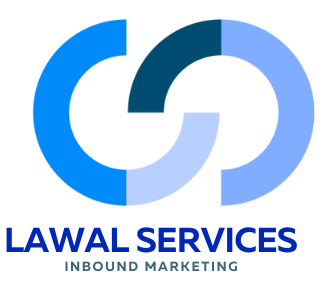The Simple Digital Marketing Strategy Every Professional Service Provider Needs
Inbound marketing can be a great tool for any professional services provider to help them reach their ideal target audience and generate quality leads. By understanding the basics of inbound marketing and creating a well-aligned strategy, you can start to see results quickly and easily. In this blog post, we will dive into the fundamentals of inbound marketing and provide practical tips to help you create a digital marketing strategy that will set you up for success.
What is Inbound Marketing?
Inbound marketing is a strategic approach that focuses on attracting and engaging potential clients through valuable and relevant content. It is all about building relationships and earning trust from your target audience, rather than bombarding them with intrusive advertisements.
With inbound marketing, you aim to provide valuable information, insights, and resources that your potential clients are actively seeking. This can be in the form of blog posts, social media content, videos, podcasts, and more. The idea is to position yourself as a thought leader and industry expert, showcasing your expertise and establishing credibility.
One of the key principles of inbound marketing is that it is customer-centric. Instead of pushing your services onto potential clients, you aim to address their pain points, answer their questions, and provide solutions to their problems. By providing helpful and relevant content, you can attract your ideal clients and establish yourself as a trusted advisor.
The Benefits of Inbound Marketing for Freelancers
As a freelancer, you may often find yourself juggling multiple tasks and constantly searching for new clients. Inbound marketing can be a game-changer for you. It allows you to attract quality leads who are genuinely interested in your services, ultimately leading to more profitable and fulfilling client relationships.
One of the key benefits of inbound marketing is that it helps you establish yourself as an industry expert. By consistently creating valuable content that addresses your target audience's pain points and provides solutions to their problems, you position yourself as a trusted advisor. This not only helps you attract clients but also builds credibility and trust, leading to long-term client relationships.
Additionally, inbound marketing is a cost-effective strategy for freelancers. Unlike traditional marketing methods that often require significant financial investments, inbound marketing allows you to leverage your expertise and provide valuable content to attract clients organically. By creating content once and optimizing it for search engines, you can continue to generate leads and attract clients over time, without incurring ongoing costs.
Inbound marketing also allows you to reach a larger audience. By leveraging various digital channels such as social media, blogs, and podcasts, you can connect with potential clients on platforms they already use and engage with. This not only helps you expand your reach but also allows you to build a strong brand presence online, increasing your visibility and credibility in the industry.
Overall, the benefits of inbound marketing for freelancers are vast. From establishing yourself as an industry expert to attracting quality leads and building long-term client relationships, inbound marketing can be a game-changer for your freelance business. So, if you're looking for a simple and effective digital marketing strategy, consider incorporating inbound marketing into your overall marketing efforts.
Identifying Your Ideal Client
Identifying your ideal client is a crucial step in creating an effective inbound marketing strategy. This involves understanding who your target audience is and what they need from your services. Start by defining the characteristics of your ideal client, such as their industry, job title, company size, and location. Consider their pain points, challenges, and goals to better tailor your content and messaging to their needs.
To further refine your ideal client profile, conduct market research and analyze your existing client base. Look for commonalities among your most successful and satisfied clients. What industries do they come from? What challenges do they face that you can help solve? Understanding the common traits and needs of your ideal clients will allow you to create content that resonates with them and positions you as the solution they've been searching for.
Creating a Strong Brand Presence Online
In today's digital age, establishing a strong brand presence online is essential for freelancers looking to attract clients and stand out from the competition. When it comes to inbound marketing, your online brand presence plays a vital role in showcasing your expertise and credibility to potential clients.
To create a strong brand presence online, start by developing a cohesive and visually appealing brand identity. This includes designing a professional website that reflects your unique value proposition and showcases your portfolio and testimonials. Optimize your website for search engines by incorporating relevant keywords and ensuring it is user-friendly and mobile-responsive.
Additionally, leverage social media platforms to amplify your brand's reach. Choose platforms that align with your target audience's preferences and create compelling content that engages and educates your followers. Consistently sharing valuable insights, tips, and updates not only helps establish your expertise but also keeps your brand top-of-mind with potential clients.
Another crucial aspect of building a strong brand presence online is actively engaging with your audience. Respond to comments, messages, and inquiries promptly and professionally. Participate in online communities and industry forums, positioning yourself as a valuable contributor and thought leader. By consistently showing up and delivering value, you can foster trust and loyalty with potential clients.
Crafting Valuable Content for Your Target Audience
Crafting valuable content for your target audience is a crucial aspect of your inbound marketing strategy. It's not enough to simply create content; it needs to be relevant, helpful, and engaging to attract and retain the attention of your ideal clients.
Start by understanding your target audience's pain points and challenges. What are they struggling with? What information or solutions are they actively seeking? By answering these questions, you can create content that addresses their specific needs and positions you as a trusted resource.
When crafting your content, aim to provide actionable insights and practical advice. Share your expertise and industry knowledge to demonstrate your value and establish yourself as a thought leader. Use real-life examples and case studies to illustrate how your services can solve your clients' problems.
It's important to also consider the format of your content. Not everyone prefers to consume information in the same way. Some may prefer reading blog posts, while others may prefer watching videos or listening to podcasts. By diversifying your content formats, you can reach a wider audience and cater to different preferences.
Remember to optimize your content for search engines by incorporating relevant keywords and metadata. This will help your content rank higher in search results, increasing its visibility and attracting more organic traffic to your website.
Lastly, always strive for quality over quantity. It's better to produce fewer pieces of high-quality content that truly resonates with your audience than to create a large volume of mediocre content. Take the time to research and plan your content topics and ensure that each piece provides value and helps your target audience solve their problems.
By consistently creating valuable content, you can establish yourself as a go-to resource in your industry and attract clients who value your expertise. Crafting content that truly speaks to your target audience will help you stand out from the competition and generate quality leads for your freelance business.
Implementing Lead Magnet Strategies
Implementing lead magnet strategies is a crucial step in your inbound marketing strategy as a freelancer. Lead magnets are valuable resources or offers that you provide to your target audience in exchange for their contact information. These can be anything from e-books, guides, templates, or exclusive access to webinars or events.
To effectively implement lead magnet strategies, start by identifying the pain points or challenges that your ideal clients are facing. Then, create lead magnets that address these specific needs and provide a solution. Make sure that your lead magnets are high-quality and provide genuine value to your audience.
Next, promote your lead magnets across various digital channels such as your website, social media platforms, and email marketing campaigns. Use compelling visuals and persuasive copy to capture your audience's attention and entice them to download or sign up for your lead magnet.
Once you've captured your audience's contact information, it's important to nurture these leads by following up with targeted email marketing campaigns. Provide additional valuable content and personalized recommendations based on their interests and needs. This will help build trust and keep your brand top-of-mind as they progress through the buyer's journey.
Nurturing Relationships with Potential Clients
Once you have attracted potential clients through your inbound marketing efforts, it's important to nurture those relationships to convert them into paying clients. Nurturing relationships with potential clients is all about providing ongoing value, building trust, and staying top-of-mind.
One effective way to nurture relationships is through personalized email marketing campaigns. Segment your email list based on your audience's interests and needs, and create targeted emails that provide additional valuable content or offers. By tailoring your messages to their specific needs, you show that you understand their challenges and are there to help.
Another strategy for nurturing relationships is through consistent communication on social media. Engage with your audience by responding to comments, sharing helpful insights, and addressing any questions or concerns they may have. By being present and responsive on social media, you show your potential clients that you are invested in their success.
Additionally, consider hosting webinars or online events where you can further demonstrate your expertise and engage with your audience in a more interactive way. These events allow you to showcase your knowledge, answer questions, and connect with potential clients on a deeper level.
Leveraging Social Media for Inbound Marketing Success
Social media platforms are powerful tools that can greatly enhance your inbound marketing efforts as a freelancer. By leveraging social media, you can reach a larger audience, increase brand visibility, and engage with potential clients on a more personal level.
To successfully leverage social media for inbound marketing, start by identifying the platforms that align with your target audience's preferences and habits. This could include platforms like LinkedIn, Twitter, Facebook, or Instagram. Once you've determined the platforms to focus on, create compelling and engaging content that resonates with your audience. This could include sharing valuable tips and insights, showcasing your work through visuals, or conducting live Q&A sessions.
Additionally, actively engage with your audience by responding to comments, messages, and inquiries. By being responsive and interactive, you build trust and establish yourself as an approachable expert in your field. Encourage your followers to share your content, ask questions, and provide feedback.
Analyzing Your Results and Adjusting Your Strategy as Needed
Now that you've implemented your inbound marketing strategy, it's time to analyze your results and make any necessary adjustments. Tracking and measuring the success of your efforts is crucial to ensure that you're on the right track and getting the most out of your marketing efforts.
Start by monitoring key metrics such as website traffic, engagement rates, and conversion rates. This will give you insights into how well your content is resonating with your target audience and whether your strategy is driving the desired results. Look for patterns and trends in the data to identify what's working and what needs improvement.
In addition to quantitative data, it's also important to gather qualitative feedback from your clients and prospects. Reach out to them through surveys or personal interviews to gather their opinions and insights. Ask them about their experience with your content, if it's been helpful, and if they have any suggestions for improvement.
Based on the data and feedback you collect, make adjustments to your strategy as needed. This could involve refining your content topics, targeting a different audience segment, or exploring new channels to reach your target audience. Continuously iterate and optimize your strategy based on what you learn along the way.


Lawal Services
We are the premier digital marketing solution for freelancers, consultants, and small businesses. Contact us today to get your free, no-obligation consultation!
Get In Touch
(629) 222-3886
11205 Lebanon Road, Unit 228Mt Juliet, TN 37122
United States
Menu
Stay Connected
Stay connected with us for insights, updates, and opportunities.




